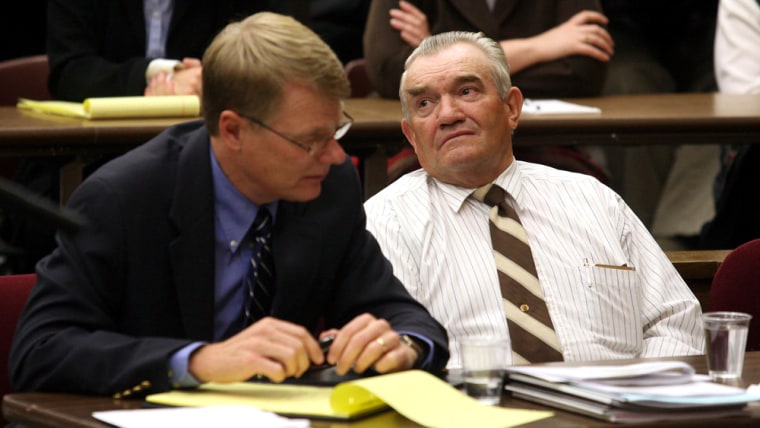A small-town judge who has three wives should not be removed from the bench because his private behavior has not tarnished the office he holds, the judge’s attorney told the Utah Supreme Court on Wednesday.
Judge Walter Steed was found to be a polygamist by the state’s Judicial Conduct Commission, and the panel issued an order seeking his removal from the bench in February.
Steed’s attorney argued during Wednesday’s hearing that while drug abuse, for example, might be grounds for removal, Steed’s private behavior in his home should not be.
“The question is whether polygamy rises to a different level of disrepute than something else,” attorney Rodney Parker said.
But those seeking to remove Steed argue that he shouldn’t break the laws he took an oath to uphold. “Judges are expected to live to a different standard,” said Colin Winchester, the commission’s executive director.
Steed has served for 25 years in the southern border town of Hildale, handing down rulings in drunken driving and domestic violence cases.
The town and neighboring Colorado City, Ariz., are dominated by the Fundamentalist Church of Jesus Christ of Latter Day Saints, a sect that broke away from the Mormon church and still practices polygamy.
The towns’ residents follow a strict pioneer-style dress code of long dresses, high collars and long hair for the women, and plain white shirts and dark trousers for the men.
Bigamy is a third-degree felony in Utah punishable by up to five years in prison. Parker contends the bigamy statute is enforced only in rare cases, such as when someone has been duped into marrying someone who already has a wife.
“As long as I can do my job, why should I (be removed)?” Steed asked outside the courtroom with one of his three wives standing by his side.
In court Wednesday, the justices focused on two issues: whether Steed’s conduct impugns the judicial office and whether he should be removed from the bench if he has not been criminally tried and convicted of bigamy.
Outmoded practice persists
Both the Utah attorney general and the Washington County prosecutor have declined to prosecute Steed.
Plural marriage was an original tenet of the mainline Mormon church, but the faith abandoned the practice as a condition of statehood in 1890. About 30,000 polygamists, who split from the main church into various fundamentalist sects more than 100 years ago, are believed to be living in Utah.
Steed legally married his first wife in 1965, according to court documents. The second and third wives were married — or “sealed” as the Fundamentalist Church of Jesus Christ of Latter Day Saints refers to it — to him in religious ceremonies in 1975 and 1985. The three women are sisters.
The state Supreme Court’s chief justice, Christine Durham, opted not to place Steed on administrative leave during the investigation. The court has 90 days to make a decision.
